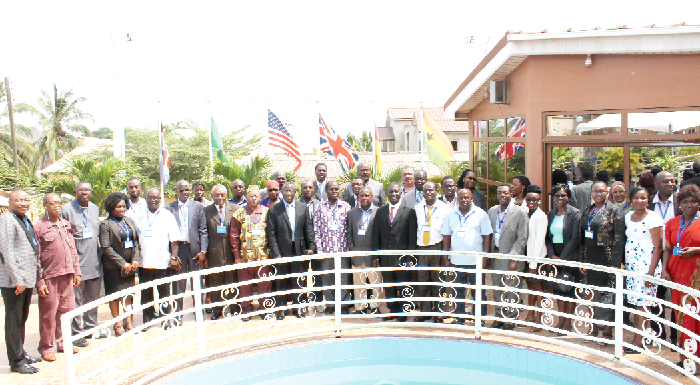
African governments asked to localise SDGs
A South African researcher, Professor Godwell Nhamo, has stated the need for African governments to localise and domesticate the Sustainable Development Goals (SDGs) to enable the average citizen to familiarise himself with the agenda.
Prof. Nhamo, a chief researcher at the University of South Africa, said the SDGs, which aim to “leave no one behind”, needed to be broken down to the level of the ordinary citizen to ensure inclusiveness and equality.
He was speaking at the opening ceremony of a two-day conference in Accra, organised by the United Nations University Institute for Natural Resources in Africa (UNU-INRA), to discuss new frontiers in natural resources management.
Researchers and professors from more than 10 African countries are participating in the conference, which is dubbed: “New frontiers in natural resources management in Africa”.
Translate SDGs into local languages
Speaking on the topic: “Domestication and localisation of SDGs in Africa”, Prof. Nhamo said the 2030 development agenda could be translated into major local languages of the respective countries as part of the effort to localise the SDGs, citing Rwanda as one of the countries that had taken the lead in that regard.
He said African governments needed to learn from their experiences in the implementation of the Millennium Development Goals (MDGs) and ensure that some mistakes that were made during the implementation of the MDGs were not repeated.
“We need to avoid a repeat of the late engagements with the SDGs as was the case with the MDGs,” Prof. Nhamo urged.
Although Africa made progress in the MDGs, he said, the achievements were not significant, hence the need to strengthen structures and institutional frameworks to make for the efficient and successful implementation of the SDGs.
“The SDGs are not a replacement of the MDGs; rather, they present an expanded 15-year development agenda — 2016-2030,” he said.
Agenda 2063
Prof. Nhamo added that Africans also needed to highlight the African Agenda 2063 and link it to the SDGs.
Agenda 2063 is both a vision and an action plan which calls for action to all segments of African society to work together to build a prosperous and united Africa based on shared values and a common destiny.
The Director of the UNU-INRA, Dr Elias T. Ayuk, said the conference was to create a platform for the sharing of innovative policies and best practices in the sustainable management of natural resources in Africa.
